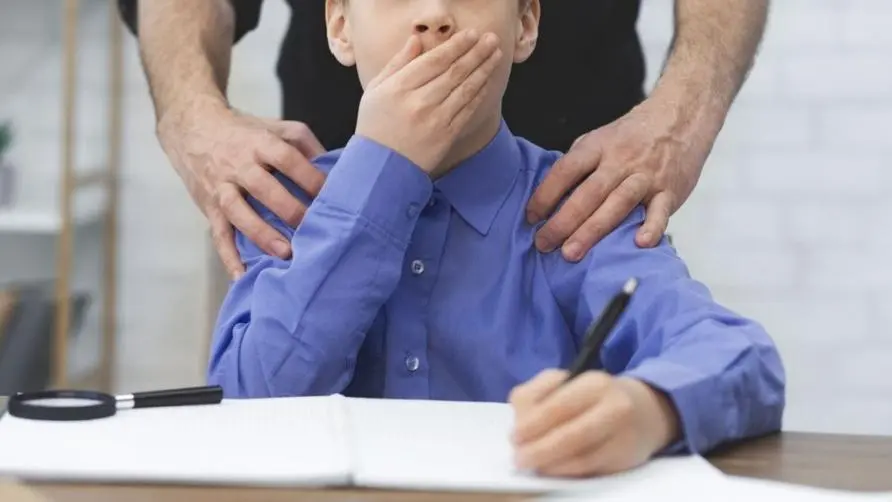"It's like looking at the world through a gray-and-white filter." Why does depression occur? How can relatives and friends around me avoid "stepping on thunder" and aggravating the condition?

Depression is the most prevalent of all mental illnesses. The lifetime prevalence rate of depression is 5 to 17 percent, which means that 5 to 17 out of 100 people will suffer from depression once in their lifetime. Readers usually have many questions about depression. Let us understand depression through the following four points and learn how to help relatives and friends suffering from depression.
what is depression
Depression is a disease that seriously affects human thoughts, emotions, and behaviors.
At the level of thoughts, depression causes us to fall into negative thinking and continue to cycle in negative thoughts. We have all experienced these thoughts, such as “I am useless”, “I am a failure”, “No one will love me”, “No one will help me”. When we are not suffering from depression, we tend to get rid of these negative thoughts by talking to friends and distracting ourselves. But it is difficult for friends who suffer from depression to do this. Negative thoughts will be like an unpleasant song, playing in their minds infinite times from morning to night. This makes them very uncomfortable but they cannot reach into their minds to turn off the song. song.
At the emotional level, depression can make us immersed in negative emotions all day long. Negative emotions include disappointment, sadness, guilt, guilt, anger, and loss of hope. You can imagine how we feel when we fall out of love. When we find that the person we love no longer loves us, will we feel endless pain, sadness, and despair? Friends who suffer from depression are forced to immerse themselves in this kind of situation almost every day. Even though I’m in a bad mood, I still have to keep my spirits up and maintain my daily life.
At the behavioral level, depression can cause us to lose energy, lose interest, and slow down our thinking and movements. The originally colorful world seems to have been put on a gray and white filter, and everything looks lifeless. The Korean dramas I originally liked to watch, the food I liked to eat, and the people I liked have all lost their original color and taste, so friends suffering from depression will gradually lose their willingness to respond to the world.
Why do you suffer from depression?
Have you ever seen that some people don’t catch a cold even if they run and jump in the ice and snow, but some people get a severe cold if they forget to dress warmly and go out in winter? This is related to the specificity of our own constitution, and the same is true for psychological diseases. Everyone has their own unique psychological vulnerability. When the pressure of the environment hits our vulnerability point, our minds will be strongly impacted.
Some people’s psychological vulnerability is the fear of speaking on stage; some are family relationships; some are intimate relationships; some are fear of being judged. Remember when we accidentally step on our friend’s “thunder”? This is one of his psychological vulnerabilities. Therefore, when our psychological vulnerabilities are continuously stepped on by external forces, psychological diseases may appear. Post-traumatic stress disorder, depression, panic disorder, and anxiety disorders all have similar causes.
How can I help my depressed relatives and friends?
Do you remember the state of the depressed friends mentioned above? They seem to be looking at the world through a gray-white filter, and the same song they no longer want to hear is spinning in their minds and immersed in cold negative emotions, so we can do this:
1. Arouse interest in the world
Accompanying a depressed friend to perform familiar tasks in the past can awaken the good mood of doing the task before. Assuming he used to like baking, we would go baking with him. He may be disinterested at first, but he can gradually awaken happy feelings by reviewing details, such as interesting things that happened while baking in the past, what someone once said, and the weather that day.
2. Reduce the interference of negative thoughts
Negative thoughts are like music that cannot be turned off, but their intensity can be reduced by being understood. Therefore, it is recommended to first understand the thoughts of friends with depression. When listening, you may hear comments about yourself from a depressed friend, and these comments may be inconsistent with your impression of him or her. For example, “I am ranked first in performance, but it does not prove that I am good enough.” “My husband has been very nice to me recently, but I still feel that I am terrible and not a good wife.” Often we are quick to contradict them, but this is often ineffective. It is recommended that when listening, you can say “I want to hear more about your thoughts” and “I want to know the impact of what you just mentioned on you.” In the process of telling you, they get the opportunity to sort out their thoughts, and they also feel that you will not criticize their thoughts, and thus gain a feeling of safety and calm.
3. Get rid of negative emotions
Sadness, guilt, guilt, irritability, and hopelessness are common emotions in depression, but emotions can be soothed by being “named.” It is recommended that when listening to a depressed friend, try to name his emotions. For example, “When you mentioned work conflicts just now, you looked a little sad.” “When I heard that you couldn’t be with your parents because of the epidemic, I felt like you were a little guilty.” There are some emotions that we are subconsciously afraid of touching, but when spoken gently by a trusted friend, these emotions will be released and the mood will become much more relaxed.
What should I do when a depressed relative or friend refuses to communicate?
Few people are born with a dislike of talking to others, but friends with depression tend to not be understood by others because of their unique thoughts and feelings, so they gradually stop talking about themselves to others. In my clinical experience, I often encounter depressed friends who are less talkative and unwilling to speak. However, sincere use of the above sharing methods (careful listening, non-judgmental understanding and companionship) can usually obtain a positive response. Therefore, readers and friends are also encouraged to try to use these methods to help your relatives and friends. Maybe each other will unexpectedly see each other’s new appearance.
Finally, if you have tried hard to use the above methods but still have limited progress, please do not be discouraged. You are welcome to accompany your relatives and friends who are suffering from depression to seek professional help from mental health professionals, and let us help you through this stage.





